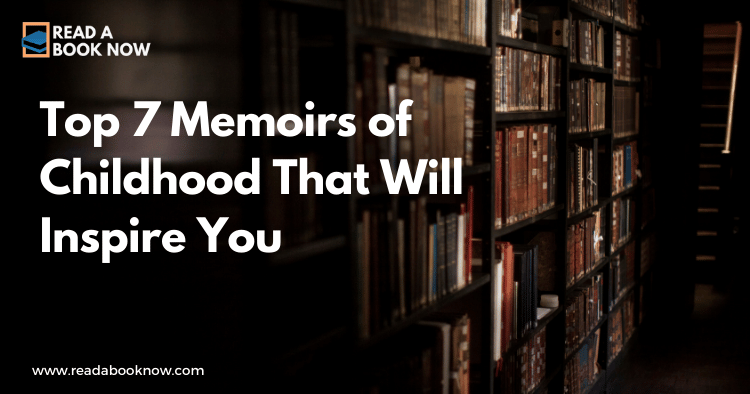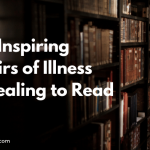Table of Contents
- Introduction
- 1. “The Glass Castle” by Jeannette Walls
- 2. “Educated” by Tara Westover
- 3. “Angela’s Ashes” by Frank McCourt
- 4. “A Child Called It” by Dave Pelzer
- 5. “I Know Why the Caged Bird Sings” by Maya Angelou
- 6. “The Liar’s Club” by Mary Karr
- 7. “Little House on the Prairie” by Laura Ingalls Wilder
- Conclusion
- FAQs
Introduction
Childhood is a tapestry of experiences, emotions, and lessons that shapes who we are. Memoirs that recount the trials and triumphs of youth not only entertain but also inspire and provide insight into the human spirit. In this article, we will explore seven captivating memoirs of childhood that are sure to uplift and motivate you. Each story is unique, weaving together memories of resilience, hope, and the beauty of growing up.
“Childhood is the most beautiful of all life’s seasons.” — Unknown
1. The Glass Castle by Jeannette Walls
Jeannette Walls’ “The Glass Castle” is a compelling memoir that delves into her unconventional and often tumultuous upbringing. Growing up in a dysfunctional family with parents who were both fiercely independent and neglectful, Walls recounts her experiences with raw honesty.
Highlights:
- Resilience: Walls emphasizes the power of resilience, showcasing how she overcame her challenging circumstances.
- Family Dynamics: The book offers a heartfelt look at the complexities of family relationships, particularly the love and pain intertwined in her connection with her parents.
With its vivid storytelling, “The Glass Castle” encourages readers to find beauty in their struggles and highlights the importance of forgiveness.
For more on Jeannette Walls and her works, visit Goodreads.
2. Educated by Tara Westover
Tara Westover’s “Educated” is a powerful memoir that chronicles her journey from a survivalist family in rural Idaho to earning a PhD from Cambridge University. Westover’s story is one of self-discovery, education, and the quest for knowledge.
Highlights:
- Transformation Through Education: The memoir emphasizes the transformative power of education and how it can alter one’s life course.
- Identity and Belonging: Westover explores the struggle between her upbringing and the world of academia, touching on themes of identity and belonging.
“Educated” is a testament to the idea that no matter where you start, you can forge your own path through determination and hard work.
Explore more about Tara Westover’s remarkable journey on NPR.
“Education is the most powerful weapon which you can use to change the world.” — Nelson Mandela
3. Angela’s Ashes by Frank McCourt
In “Angela’s Ashes,” Frank McCourt paints a vivid picture of his impoverished childhood in Limerick, Ireland. Despite the dire circumstances, McCourt’s storytelling is imbued with humor and warmth.
Highlights:
- Humor in Hardship: McCourt’s ability to find humor in tragic situations makes this memoir both poignant and uplifting.
- Cultural Context: The book gives readers insight into the struggles of Irish families during the Great Depression.
“Angela’s Ashes” is a powerful reminder of the resilience of the human spirit, making it a must-read for anyone who appreciates a well-told story.
Learn more about Frank McCourt’s life and legacy at The New York Times.
4. A Child Called It by Dave Pelzer
Dave Pelzer’s “A Child Called It” is a heart-wrenching memoir of child abuse and survival. Pelzer recounts his experiences of being a victim of his mother’s cruelty and how he ultimately escaped that oppressive environment.
Highlights:
- Survival Against the Odds: Pelzer’s story is one of remarkable survival, showcasing the strength of the human spirit in the face of unimaginable adversity.
- Awareness of Child Abuse: The memoir sheds light on the harsh realities of child abuse, helping to raise awareness and promote understanding.
This memoir is not only inspiring but also serves as a rallying cry for those who have experienced similar traumas.
For more resources on child abuse awareness, visit ChildHelp.
“Survivors are not just people who have been through terrible experiences. They are people who have faced their pain and found a way to live despite it.” — Unknown
5. I Know Why the Caged Bird Sings by Maya Angelou
Maya Angelou’s “I Know Why the Caged Bird Sings” is a classic memoir that explores her childhood in the segregated South. Through her powerful prose, Angelou addresses themes of racism, identity, and resilience.
Highlights:
- Empowerment Through Voice: Angelou’s narrative emphasizes the importance of finding one’s voice and the power of storytelling.
- Overcoming Trauma: The memoir discusses her experiences with trauma and how she transformed her pain into strength.
With its lyrical language and profound insights, Angelou’s memoir resonates deeply with readers, inspiring them to rise above their circumstances.
Discover more about Maya Angelou’s legacy at The Poetry Foundation.
6. The Liar’s Club by Mary Karr
Mary Karr’s “The Liar’s Club” recounts her chaotic childhood in a Texas family filled with eccentric characters and secrets. Karr’s witty and candid writing style draws readers into her world.
Highlights:
- Humor and Heartbreak: The memoir balances humor and heartbreak, illustrating the complexities of family life.
- Coming of Age: Karr’s narrative is a powerful coming-of-age story that celebrates resilience and authenticity.
“The Liar’s Club” demonstrates how humor can be a coping mechanism in the face of adversity, making it a refreshing read.
Learn more about Mary Karr’s works at HarperCollins.
“Humor is a rubber sword—it allows you to make a point without drawing blood.” — Mary Karr
7. Little House on the Prairie by Laura Ingalls Wilder
Laura Ingalls Wilder’s “Little House on the Prairie” series is a beloved classic that offers a glimpse into pioneer life in America. Wilder’s vivid descriptions of her childhood adventures resonate with readers of all ages.
Highlights:
- Nostalgia and Simplicity: The memoir captures the simplicity and challenges of frontier life, evoking a sense of nostalgia.
- Family Values: The strong family bonds depicted in the book highlight the importance of love and support.
Wilder’s storytelling ignites a sense of adventure and appreciation for the simple joys of life.
For more on Laura Ingalls Wilder, visit The Laura Ingalls Wilder Home Association.
Conclusion
These seven memoirs of childhood offer powerful insights into the human experience, showcasing the resilience, strength, and creativity that emerge from our formative years. Whether you are seeking inspiration, a deeper understanding of the human condition, or simply a good read, these books are sure to leave a lasting impact.
“Books are a uniquely portable magic.” — Stephen King
Also Look For
If you enjoy exploring the themes of resilience and the human spirit, consider reading classic literature that highlights similar journeys. Check out our articles on Top 7 Ancient Classics Everyone Should Read Today and Top 10 Must-Read 19th Century Classics for Every Book Lover. These classics feature characters who navigate their own challenges, much like the memoirists highlighted above.
FAQs
Q: What is a memoir?
A: A memoir is a literary genre that recounts personal experiences and reflections of the author, often focusing on specific themes or events in their life.
Q: Why are childhood memoirs important?
A: Childhood memoirs provide insight into the formative experiences that shape individuals. They often explore themes of resilience, identity.




